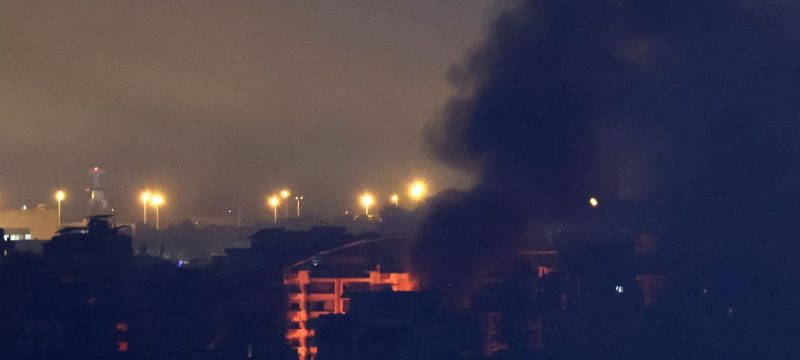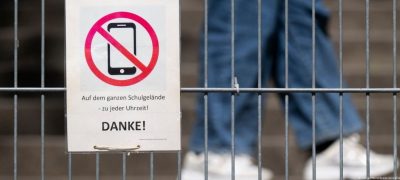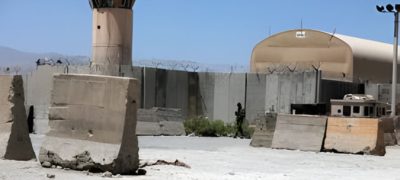On Wednesday, Hezbollah militants fired artillery shells and rockets at Israeli soldiers near the Lebanese border village of Labbouneh, following Israel’s claim of killing two successors to Hezbollah’s deceased leader. Sirens were activated in northern Israel, and the Israeli military reported that three soldiers sustained serious injuries during combat in southern Lebanon over the past two days.
Israeli Prime Minister Benjamin Netanyahu stated that airstrikes had eliminated two individuals who were to succeed the late Hezbollah leader, while he asserted that Israel had significantly weakened Hezbollah’s capabilities by targeting numerous operatives, including Hassan Nasrallah and those expected to take his place. Israeli Defense Minister Yoav Gallant indicated that Hashem Safieddine, the likely successor to Nasrallah, had probably been killed, although details regarding the “replacement of the replacement” were unclear.
Read more: Israel Launches Attack on Beirut Aiming at Hezbollah Leader Hashim Safi al-Din
Israeli military spokesperson Daniel Hagari noted that they were aware of Safieddine’s presence in Hezbollah’s intelligence headquarters during recent airstrikes and would update the public once his status was confirmed. The increased Israeli military offensive has resulted in at least 50 Hezbollah fighters, including key commanders, being killed in heavy airstrikes against their underground facilities in southern Lebanon.
The regional tensions, exacerbated by Hamas’s attack from Gaza last year, have intensified, leading to broader conflict involving Lebanon. Iran, which supports both Hezbollah and Hamas, recently fired missiles at Israel and cautioned against any retaliatory threats, asserting that any attack on its infrastructure would provoke a strong response.
Biden-Netanyahu Call
U.S. President Joe Biden is anticipated to hold a phone call with Israeli Prime Minister Netanyahu on Wednesday to discuss any potential military actions against Iran, according to Axios, which cited three U.S. officials. A U.S. official indicated that the purpose of the call is to define the parameters of Israel’s response, emphasizing the need for any strikes on Iran to be significant but not disproportionate.
The White House has not yet commented on this report. Meanwhile, Western nations are pursuing a diplomatic resolution to avoid escalating tensions that could disrupt the broader oil-producing Middle East and involve the United States.
On Tuesday, the Pentagon announced that Israeli Defense Minister Yoav Gallant would cancel his planned visit to Washington and a meeting with U.S. Secretary of Defense Lloyd Austin. In a televised address from an undisclosed location, Hezbollah’s deputy leader, Naim Qassem, expressed support for efforts to secure a ceasefire, notably without making the end of the Gaza war a precondition for halting hostilities in Lebanon.
Netanyahu’s office chose not to respond to Qassem’s statements. U.S. State Department spokesperson Matthew Miller commented that Hezbollah’s desire for a ceasefire stems from their weakened position on the battlefield. Qassem asserted that Hezbollah’s capabilities remain intact despite facing significant challenges from Israel, claiming that “dozens of cities are within range of the resistance’s missiles” and assuring that their strength is unaffected.
Israel reinforces troops in Lebanon
The Israeli military announced the deployment of the 146th Division into southern Lebanon, marking the first reserve division to cross the border. Ground operations against Hezbollah are expanding from southeast to southwest Lebanon. While a military spokesperson refrained from disclosing the exact number of troops in Lebanon, previous announcements indicated that three other army divisions were already active, suggesting that thousands of soldiers may be on Lebanese territory.
Overnight, Israel targeted southern Beirut, where Hezbollah’s headquarters are located, claiming to have killed Suhail Hussein Husseini, a key figure responsible for budgeting and logistics within the group, adding to a series of assassinations of senior Hezbollah officials. An Israeli military spokesperson reported that over 3,000 rockets had been fired into Israel from Lebanon in October, although air defense systems had mitigated potential casualties and damage.
The escalating conflict between Israel and Hezbollah has resulted in over 1,000 deaths in Lebanon in the past two weeks and caused more than a million people to flee their homes. The violence was ignited by a Hamas attack on southern Israel on October 7, 2023, which resulted in the deaths of 1,200 individuals and the capture of 250 hostages, according to Israeli figures. Israel’s retaliatory actions have drawn widespread criticism due to the nearly 42,000 fatalities reported in Gaza, according to the local Palestinian health ministry.









